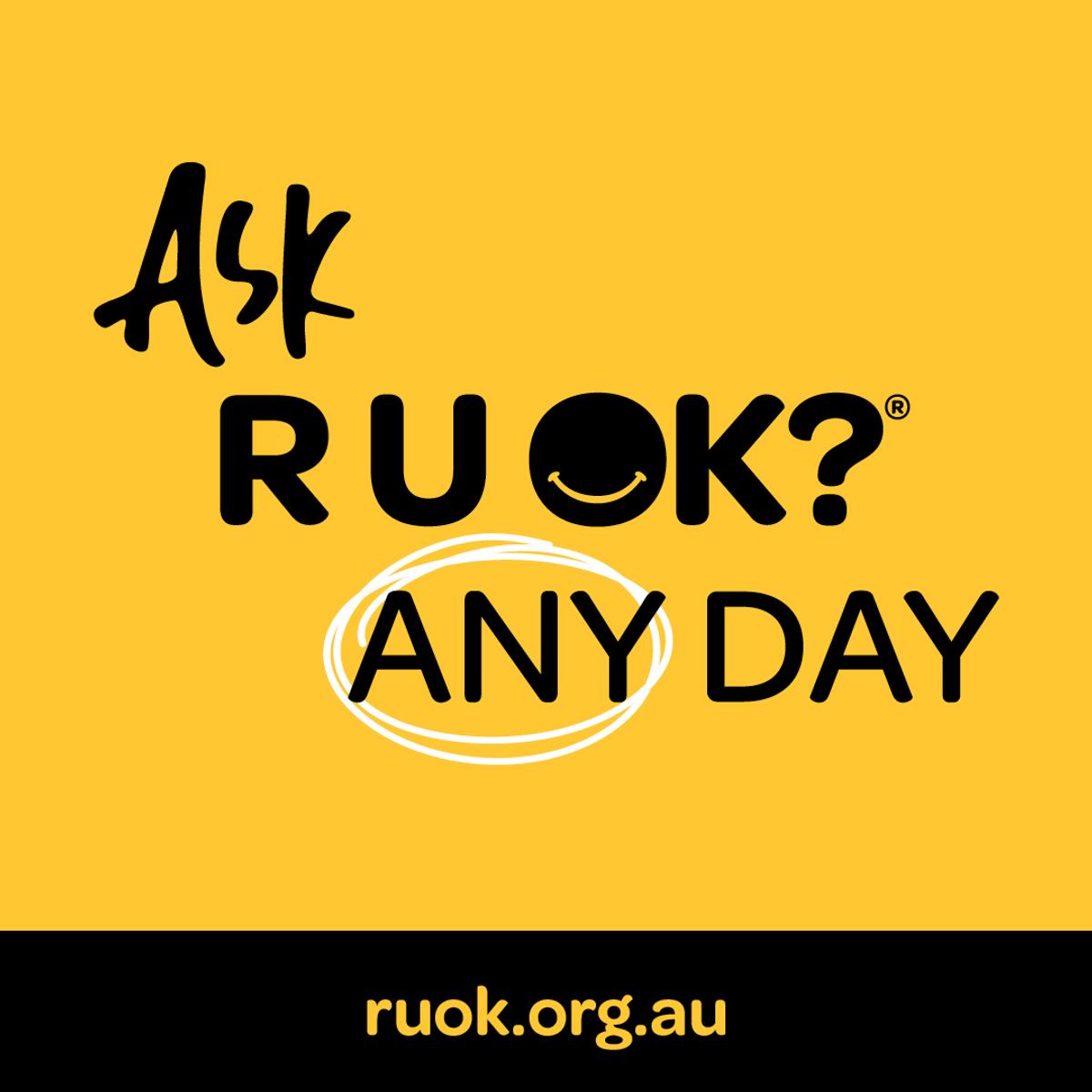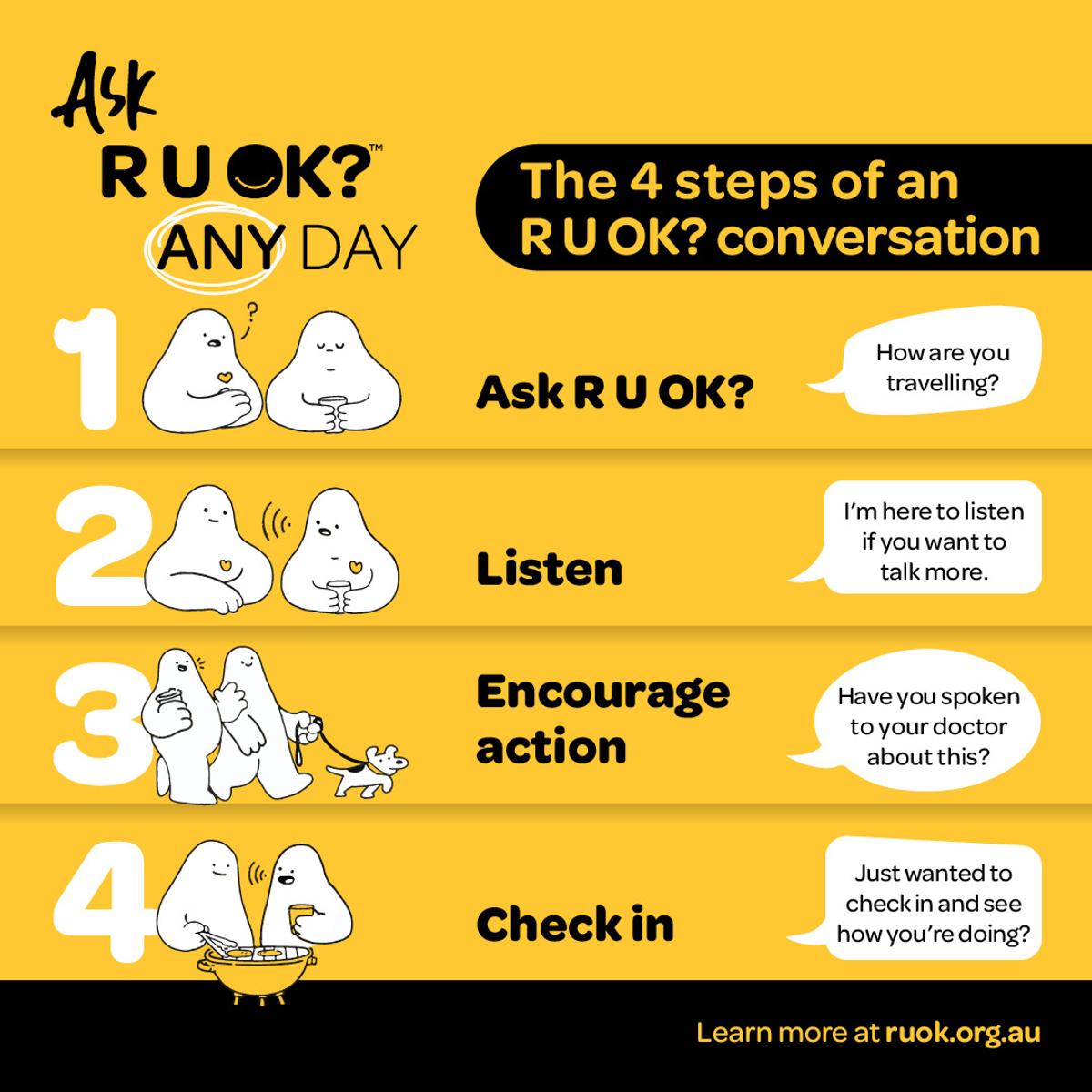Student Wellbeing

R U OK? Day
On Thursday, 11 September, it is R U OK? Day, a national initiative that inspires and empowers people to connect with those around them by simply asking the question: “Are you OK?”
The aim of the day is to encourage Australians to reach out to friends, family, colleagues and community members who may be struggling with life’s ups and downs. A meaningful conversation can leave someone feeling supported, heard and less alone. You don’t need to have all the answers; just being there to listen can make a real difference.
R U OK? is a harm-prevention charity that reminds us of the importance of connection and conversation in supporting wellbeing. The focus of the campaign is to build people’s confidence and skills to check in on those around them and to have conversations that may help someone through a difficult time.
At its heart, R U OK? Day highlights that staying connected and seeking support is a shared responsibility across the whole community. Together, we can create a culture where people feel safe to talk about how they’re really going and know they have someone who cares.
“A conversation could change a life. You don’t have to be an expert, just a good friend and a great listener.” – R U OK?
When might you ask, “Are you OK?”
The people in our lives don’t always tell us when something is wrong, so it’s important to make asking “Are you OK?” part of everyday relationships with friends, family, teammates and colleagues. Checking in early can help someone find support before small problems become bigger ones.
You might consider asking if someone is going through:
- Relationship difficulties or a breakup
- High or ongoing stress
- Financial challenges
- Major changes at work, home or in life
- Grief or loss
- A major health issue
What signs should you look for?
Sometimes you may notice changes in what someone is saying:
- Expressing they can’t cope or feel out of control
- Being highly critical of themselves or others
- Talking about feeling trapped, lonely, or a burden
And sometimes you may notice changes in their behaviour, such as:
- Lacking motivation or energy
- Difficulty sleeping or relaxing
- Changes in eating or exercise routines
- Withdrawing from activities they used to enjoy
- Paying less (or more) attention to appearance
Tips for Parents: Starting the Conversation
- Choose a quiet moment where you won’t be rushed or interrupted.
- Ask open questions like “How are you going with everything?” or “What’s been on your mind lately?”
- Listen without judgement and give them time to share.
- Let them know they’re not alone and encourage seeking extra support if needed.
Activities for Parents
Parents and families can support R U OK? Day by creating simple moments of connection at home and in the community:
- Family Check-in: Go around the dinner table and share one positive thing and one challenge from your day.
- Walking and Talking: Take a walk together and use the time to ask how everyone is really feeling.
- Letter or Note of Care: Encourage your child to write a kind note or draw a picture for a family member or friend to brighten their day.
- Community Connection: Reach out to a neighbour, relative, or friend you haven’t spoken to in a while with a call, text, or visit.
Model Openness: Share your own strategies for coping with stress so children see that it’s okay to talk about feelings.
By asking the question and listening with care, you may help someone feel supported and connected – and that can make all the difference.


